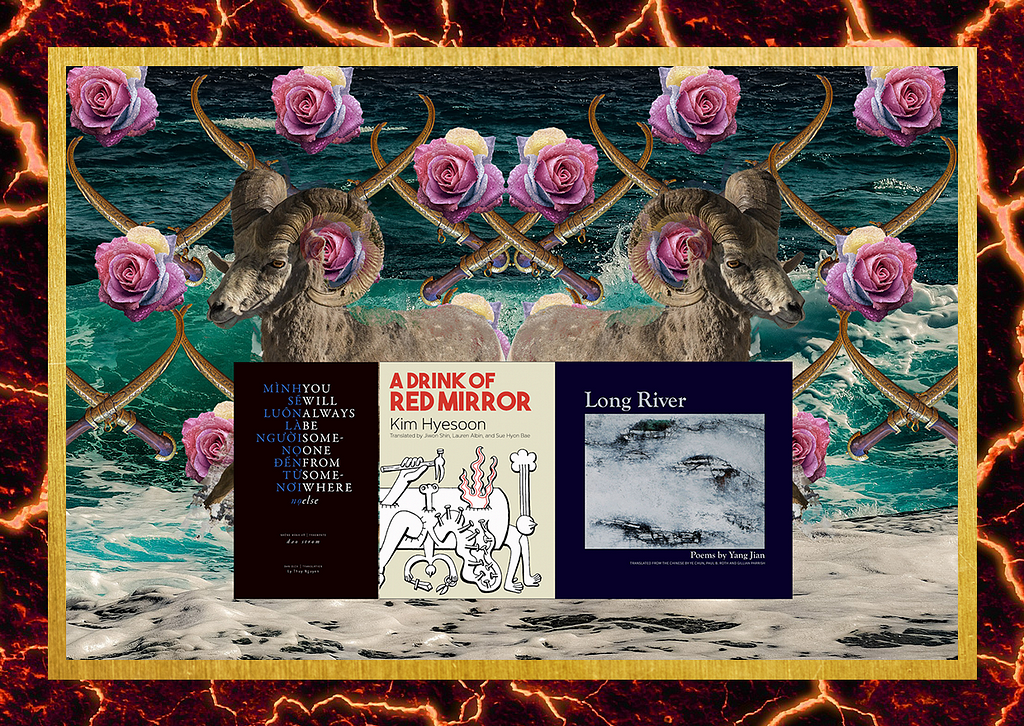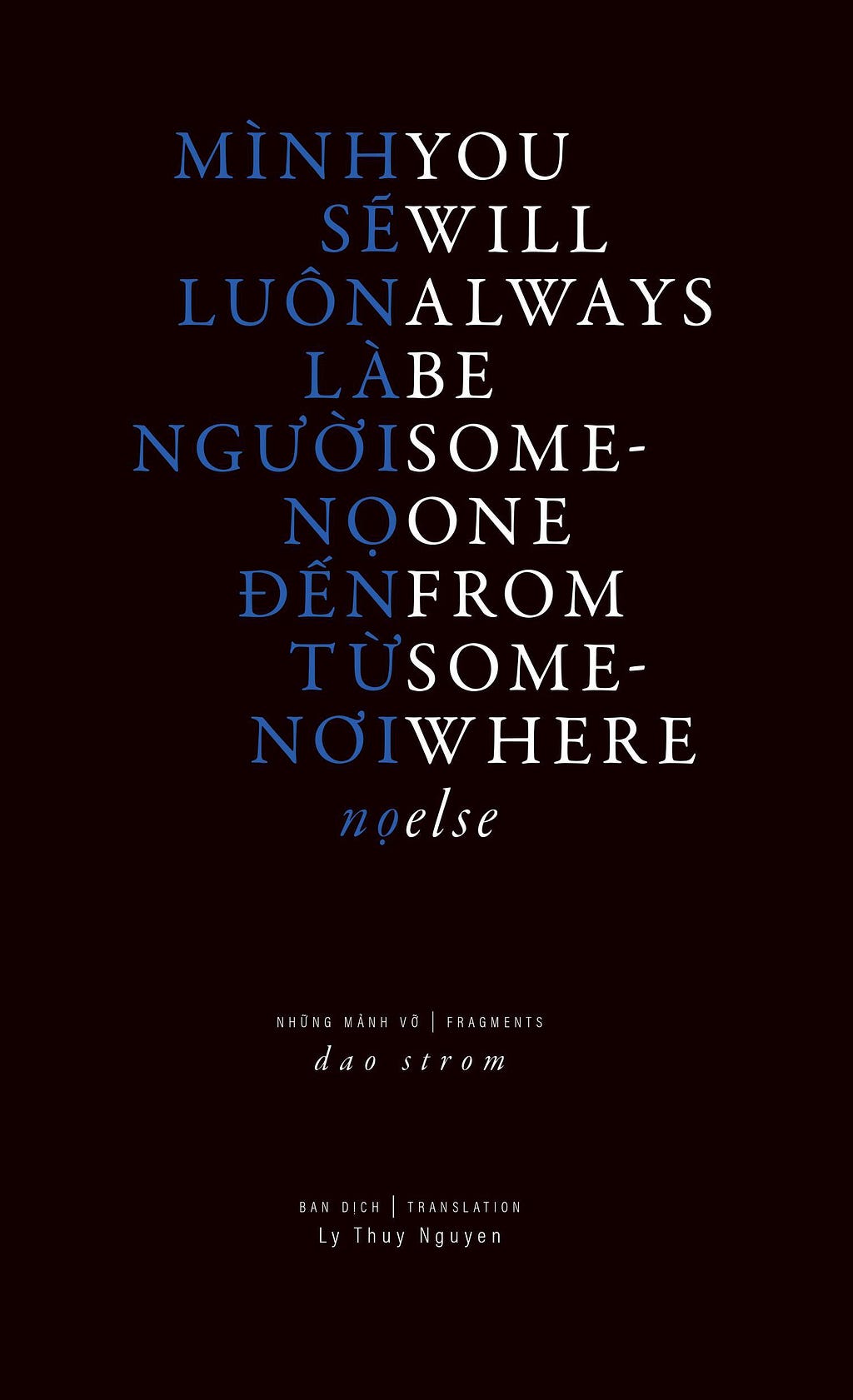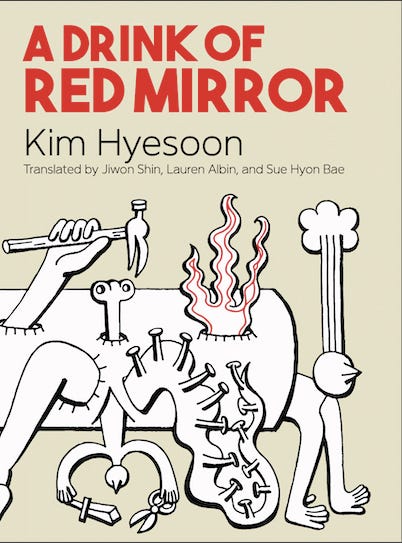
The Vernal Equinox is more than just the moment when day and night teeter on a momentarily equal balance. The Vernal Equinox is the moment when the astrological year ends and begins again, and thus when the two most different signs of the zodiac meet.
Pisces, Mutable water, the “old man” of all the signs, the Fish, swimmer in two directions, comprehender of infinity, embodier of compassion and acceptance and the infinite variety of shades of suffering and hues of beauty, slips into Aries, Cardinal fire, the baby of the zodiac, the Ram, charger forth into the unknown, brash bearer of urgency and impulse. And Winter, in its last wet and subtle dregs, bursts abruptly into Spring.
It is not, typically, an easy time of year. Neptune, Pisces’s ruler, that great, slow-moving king of the sea, has an encompassing energy that absorbs all currents, moving with the imperceptible power of deep ocean currents. We spend most of March drifting along with it in a dead man’s float, to and fro with the flotsam and jetsam that have made their way into those depths, learning to see the creatures of the deep. We learn to see, like Pisces, the complexity and ambiguity of all things.
Into all of this transparent and peaceful blue comes tiny, fiery Mars, god of war, red and burning, restive and belligerent, scorching earth and leaving a steam trail behind it. It’s a rough awakening (I can hear the Pisces among you nodding your heads). Rude, even. Mars is not know for his politesse. What he is known for is bursting through walls, kind of like the Kool-Aid man of old, emitting an “OH YEAH” of satisfaction at his own unstoppable momentum, and then storming on his way. Mars is about forward motion, and lots of it, and so is Aries. And so from 20 March on, there is no more complexity and ambiguity in the offing. Rather there is GO GO GET GET IT NOW. Like a hungry baby, Aries wants what it wants, and whether what it wants is a taco, a medal, or the last box of Rice Krispies on the shelf in a snowstorm, you best get out of the way if you value your safety.
Not that Aries is violent. Aries is just direct, and sometimes that directness involves stepping on a few toes. Sometimes even the most game of us regrets the smooth blue waters we were swimming in just before. But the lesson of the Vernal Equinox is the lesson of transitioning from dormancy to action, from mutability to leadership, and from flowing like water to lighting the sky up like fire. It is the lesson of giving up the comfort of acceptance for the impetus to create change. And it is a lesson all of us need to learn as Winter melts into Spring, universally: the time for contemplation is done. Go forth and conquer. This will be easier for the fire and air signs among us, who may be feeling a bit smothered by Pisces energy by month’s end. But it’s most essential for water and especially earth, who tends to get bogged down and convince itself that patience (and inaction) are virtues. Confidential to Virgo, Taurus, and Cap: they are, until March 20. After that, y’all just lazy.
Fortunately, this year the 20th also brings a full Moon in Libra, bringing an aspect of balance for relationship (all kinds) and partnership. But make sure you give this aspect its due — the temptation will be to go with kneejerk Libra, which is about superficial balance: the preservation of romance and partnership, often at (unseen) personal cost. Kneejerk Libra encourages basic level peacemaking, smoothing over, and a whole lot of avoidance of conflict. Evolved Libra is radically different. It is about creating balance in one’s relationships and partnerships even if the balance is best served by dumping them into the trash, and fiery Aries is here to shine a light on that for you. Particularly for natives of Libra, this full Moon will encourage introspection and then planned action in their personal affairs, which tend to get lopsided quickly. Other signs may find this influence lends more equilibrium to decisions, especially personal ones. But be careful of how you communicate those decisions — until 28 March, Mercury is retrograde, which can mean it’s best to keep your own counsel and stay, literally and figuratively, close to home. This period demands focus on your own internal checks and balances and how to implement them, and Aries, in its beautiful self-absorption, will work with Libra to encourage this. It’s all about you. Time enough for letting others know what’s going on when Mercury goes direct, after you’ve given yourself that period to reflect on things with Number One.
Because that is the lesson of Aries: manifesting Number One. Pisces, in its gentleness, in its seeing of multiple perspectives, in its empathy, is all about others, life’s rich pageant of humanity, universality. Aries, at its best not childish but childlike (candid, honest, disarming, passionate, true), is all about learning to be yourself, no matter how difficult that might seem, no matter how frightened you might be of how others will react. Aries is about finding the home inside your own body, inside your own mind, and occupying all of it, even the parts that are ugly or scary. To love life is to love yourself.
There are a lot of great Aries examples of this, but for the one perfect example that shows us this moment, the moment when the sun enters Aries, I give you Fred Rogers, born 20 March 1928, on love: “Love isn’t a state of perfect caring. It is an active noun like struggle. To love someone is to strive to accept that person exactly the way he or she is, right here and now.”
For this struggle, then, some sustenance: three books that travel from water into fire, that strive to accept exactly what is (and the road is difficult): Yang Jian’s Long River (Tinfish, 2018), Kim Hyesoon’s A Drink of Red Mirror (Action Books, 2019), and Dao Strom’s You Will Always Be Someone from Somewhere Else (AJAR press/Fish Eye Editions, 2018).

Yang Jian, former factory worker, practicing Buddhist, and now laureate of many poetry prizes in China, appears now in English in the capable translations of Ye Chun, Paul B. Roth, and Gillian Parrish. Yang’s work is a work of contemplation, both gentle and stark, and might at first seem (as the title indicates) pastoral, were it not so unafraid to incorporate the unloveliness of nature and the world: “I need to be more sincere in pain,/like how a dog treats its owner’s kicks/always wagging his tail.” Is this irony or simply acceptance? Perhaps both, for in these poems Yang paints a world in which the pitiless awareness of true vision, of responsibility, also manages to coexist with compassion and self-compassion. Yang’s poems portray pathos and solitude, solemness and incongruity, and most of all pare the image down to its most unvarnished truth, whether literal or metaphoric, from “the minute hairs on his anus” as a rural man squats over a hole to the small town in which “in the deep alleys,/a man held running on a dog leash/never knows he is a man kept running on a dog leash.” Yang’s poetry is not didactic or inclined to commentary, but a poetry in which the image presented cannot but remind us of our own struggle, our own predicaments, and the confounding beauty of same: reading this work, one becomes aware that in fact: “Our whole lives/contained in the morning’s/two or three bird calls.”
That is Yang’s gift to us with Long River: the humanity and complexity of even the least glamorous and most humble realities, and the reality of our own personal struggles within them: “O, light strokes/from a heart./Heart that can’t be talked about,” Yang writes, but yet: “I will still circle your heart with my roots.” It is not the world we might have chosen, but it is the world to which we belong.

Dao Strom’s beautiful poem/memoir/travelog/contemplation, presented in fully bilingual format with Vietnamese translation by Ly Thuy Nguyen, takes us to another place in the struggle: the struggle within the self, for origin, for belonging, for a state of home. In factual terms it tells some of the story of a trip back to the poet’s natal Vietnam (“Former country, /Former water”), an investigation of “All these memories I may belong to,/that do not belong to me.” In fragments, in photos, in prose, in snippets of dream, Strom has written less a narrative than a mixed-media journey that, boomerang-like, comes back to the place it began, and which the reader will want to devour in one sitting, floating on waves, “seeing on two shores.” Strom’s self-interrogation can be pitiless: “Didn’t you once have a beating heart?” or accusatory: “i had forgot /white /is a color of mourning/ in the culture/ of my birth…” and then on the same page, “white boys will always take it/upon themselves to remove” — encompassing the fall of Saigon as memorialized in a taxi driver’s tattoo, the diaspora and displacement that ensues, Strom weaves together these many waters that make us, until “Especially in April/…coming from so much death/how could we not know/we are alive.”
Strom’s fraught and beautiful journey, with its clash and melding of language, allows us to find in the impossibility of homeliness, in the elusiveness of origin, the persistent intelligence of the one who seeks, and who is alive.

Kim Hyesoon’s A Drink of Red Mirror, translated by Jiwon Shin, Lauren Albin, and Sue Hyon Bae, brings us more firmly into the clash and struggle of Aries dealing with the power and violence of the self. For those familiar with Kim’s work, which has been called a poetry “of the female grotesque,” here is where we leave the place of acceptance and burst into the energetic rage, still imbued with an acute consciousness for predicament, detail, and the limitation of our lumpy and gaping selves. Kim illustrates the struggle through nature, as in “The butterfly that has fallen in love flies into the typhoon/The butterfly soars, falls, then falls again/and abandons the frantic orchestra to the air” or through turning her acute lens on the body: “In the bouquet of red roses under your skin/I’ll open my dried-up eyeballs/…I’ll make the red fish inside each pleat of your accordion hiccup/So vulnerable it’s dazzling/I’ll rupture the red blood cells of time.” Kim’s work skates along the edges of our dark and gruesome hearts, the organs that make us and make us think, but it also, in this collection, seems to spend less time in corporeal viscera and more time in the nonhuman beings around us, whether in sharing the lament of a spider: “Was her home hiding inside her body?…Her home where she can’t even enter or live” to reflecting, in a poem called “Cambodia,” on the deep roots of trees as a metaphor for the victims of genocide. In A Drink of Red Mirror, Kim has transcending the personal violence that often characterizes her work and become airborne, like a bird, like a comet: “Those stars in the sky/clutching the air and hanging for millions of years/shudder and weep tonight/all is so perilous” —
…and this is what Kim leaves us with, the poet herself vulnerable and alone, in the final poem, “Daily Funeral:”
“So I’m begging you, don’t forget Kim Hyesoon/standing here panting like a broken faucet.”
Pathos and humor. Self-mocking and plea. And a total lack of apology for the frailty of the human self. That is where we are, in March, as Spring bursts forth.
That is our struggle now, as we go from Pisces (acceptance) into Aries (love). To integrate. To be all of ourselves, as Yang writes: “I must first return to dust, before I can say I am dust./I must first rise into the air, before I can say I’m flying.” Aries will inform you: you have the necessary courage to fly. To love with all the fierceness of war. To keep struggling to accept that home inside the body, that glowing heart of Spring bursting forth in each of us. Welcome to the rebirth, all. Y ¡ Viva la lucha !
The Home Inside the Body: Real Chaos Astrology, vol. 13 was originally published in Anomaly on Medium, where people are continuing the conversation by highlighting and responding to this story.
